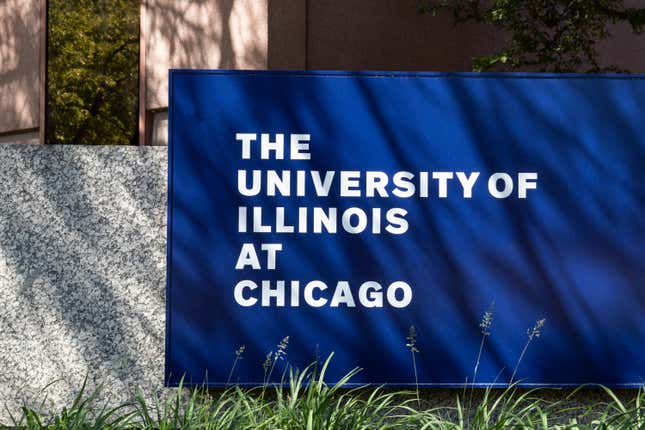
A group of lawmakers came together and sent a letter of concern to the University of Illinois at Chicago College of Dentistry alleging that instances of racism and unequal treatment towards students of color have been going on for years, according to the Chicago Tribune. U.S. Reps. Robin Kelly, Danny Davis, and state Rep. La Shawn Ford addressed the letter to university President Timothy Killeen and asked for a meeting.
Many of the alleged instances surround one particular professor while some accusations include showing “a photo of someone with a noose around the neck and a hood over the head” during a presentation and asking about a student of color’s “natural hair.”
From the Chicago Tribune:
“We write today to condemn, in the strongest possible terms, the disturbing racist imagery and tropes, by a professor at the UIC College of Dentistry,” the letter states. “There are also additional reports of this professor using racist imagery and tropes in their teaching.”
“Students and alumni of UIC College of Dentistry have expressed to us that racist teachings and the unequal treatment of students has been ongoing for years,” the letter went on. “A recent revelation made us aware of a noose appearing in a PowerPoint presentation for seven years, which is disturbing. … This professor has continued to teach without any response or action from the university. Students of color have reportedly continued to be targeted at the university from being asked about their ‘natural hair’ to being called the N-word.”
Vice president of External Relations and Communications Adrienne Nazon stated that an investigation had been launched and the university would respond to the letter.
In this matter, the University’s Office for Access and Equity (OAE) immediately launched a full investigation. The College of Dentistry is actively working with students and employees to address their concerns and ensure they receive needed support. We will continue to strive to be a community that lives our values of mutual respect, dignity and equity, where all can thrive while feeling safe and supported.”
Specific questions were asked, including when the university found out about the professor’s behavior and what steps were taken to respond. The letter did not name the professor in question.

